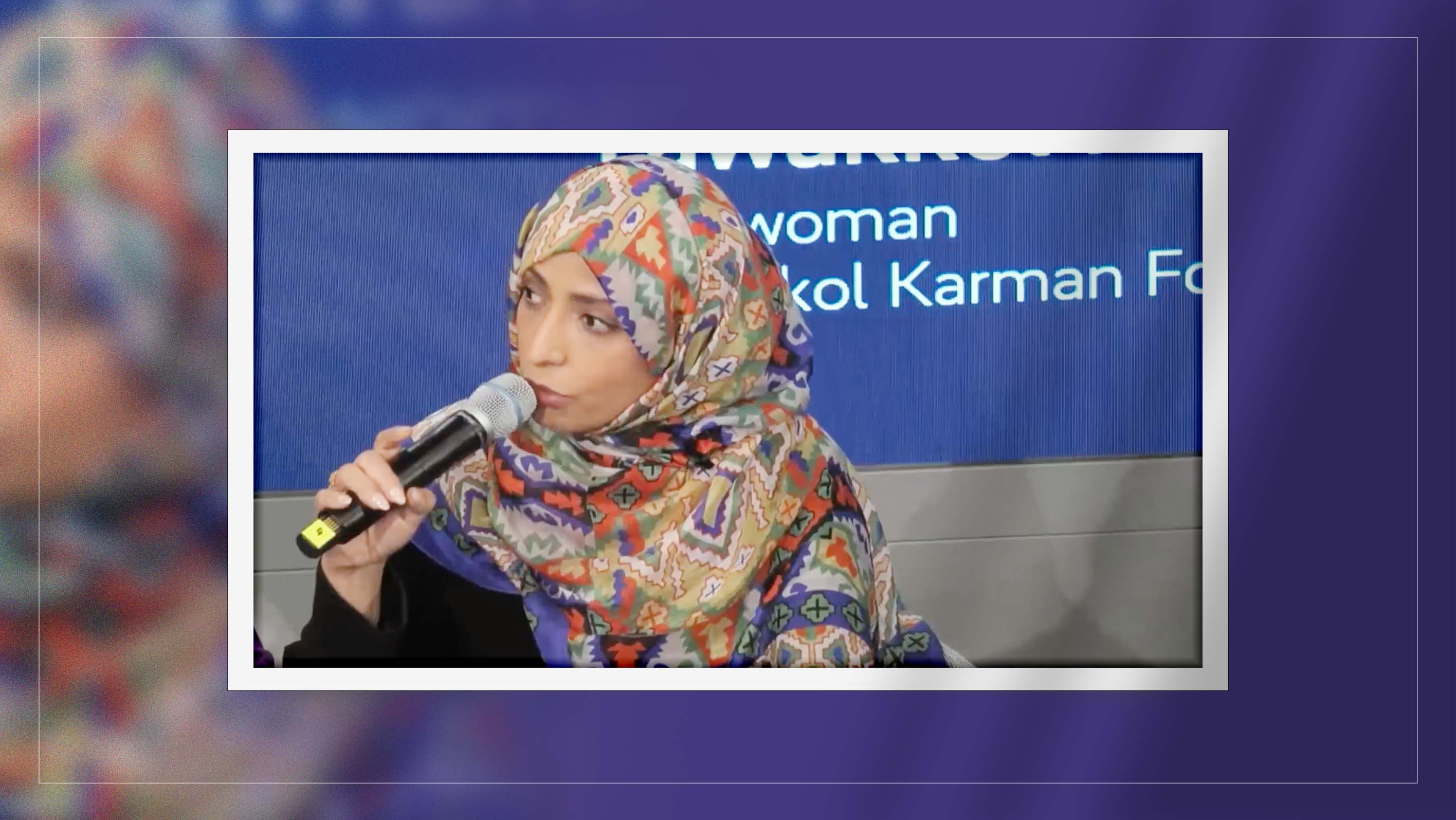Activities

Nobel laureate Karman sounds alarm on democracy's future at 2024 MSC
Participating in a session titled "Ballot Boom or Bust? Democratic Resilience in a Super Election Year" at Munich Security Conference 2024, Nobel Peace Prize laureate and human rights fighter, Tawakkol Karman,
warned against the dangers posed by developed nations aligning with authoritarian regimes. Expressing deep concern about the current geopolitical landscape, Karman emphasized the need for vigilance in protecting democratic values worldwide.
Karman expressed deep concern about the course of events this year, considering the complexity and ambiguity of the scene to be the most prominent features of the current year.
In response to a question about social media and its transformation from a "force for good" to a very negative space, and her view of the change that has taken place in the virtual world and how it has affected democracy around the world, she implicated that social media is a double-edged sword.
Karman expounded on how authoritarian regimes exploit social media as a means to undermine the gains of the Arab Spring, stifle the voices of activists and dissenting political opinions, and propagate misinformation. However, she also emphasized that social media possesses significant potential as a vital tool for amplifying people's voices.
While considering the pros and cons of regulations and organizational measures adopted by governments to combat disinformation and the misuse of artificial intelligence, Tawakkol Karman observed that while some regulations can address issues such as fake news and the misuse of artificial intelligence, they are also being used by regimes and governments as a means of controlling and suppressing freedom of the press and expression rights.
Additionally, she addressed the issue of government collaboration with social media platforms like "Facebook," "X," and others. She voiced her apprehension that such cooperation might result in heightened government oversight and surveillance of online content, potentially stifling individual voices.
Regarding democracy, Mrs. Karman highlighted the serious threat to it, expressing profound concern about its present condition, not only in nations governed by non-democratic regimes but also in its bastions and focal points.
Karman asserted that the threat to democracy extends beyond right-wing extremists, highlighting a decline in the commitment of liberal leaders and democratic nations to safeguarding human rights and upholding the values of democratic principles.
Karman also leveled criticism at Western politicians, specifically targeting the United States, Europe, and Britain, for prioritizing narrow interests and forging alliances with dictatorships. She argued that this approach has had a detrimental impact on democracy, its values, and its principles.
Amidst the discussion, Karman asserted that democracy extends beyond electoral processes and voting, encompassing principles such as freedom of expression, transparency, accountability, and protection of minority rights. She emphasized the imperative of preserving these democratic values, particularly in light of the escalating government influence on social media platforms.
Karman cautioned that undermining democracy will inevitably result in a loss of trust in its institutions, not only within the United States but globally as well. She highlighted the gradual erosion of people's faith in democracy as a pathway to stability and prosperity, underscoring its grave repercussions. Concurrently, she emphasized the urgency of challenging the emerging narrative that democracy invariably leads to chaos and instability.
Karman stressed the utmost significance for leaders, whether in the United States, the European Union, or elsewhere, to exemplify steadfast dedication to democratic values.
Additionally, she cautioned about the repercussions of leaders from these nations prioritizing alliances with wealthy and autocratic regimes over the preservation of democratic principles. This, she warned, could ultimately strengthen authoritarian systems.
Mrs. Karman underscored the critical need to confront the ongoing violations and injustices against human rights, particularly the ongoing war of extermination against the people of Gaza. She shed light on the harsh truth that millions are currently enduring unimaginable suffering and perishing in their struggle for the most basic rights to life and survival. Karman emphasized the imperative of acknowledging and tackling the urgent humanitarian crises afflicting these populations.
As for the upcoming US elections scheduled for November, Tawakkol Karman voiced concerns over their potential implications for the global landscape. Karman questioned whether the electoral outcome would usher in leaders committed to upholding democratic values or pave the way for more extremist and polarizing figures.
Karman issued a heartfelt plea to the American populace, urging them to safeguard democracy given its symbolic significance on the global stage. Moreover, she lamented the current actions of liberal democratic politicians in foreign policy, describing them as unfortunate due to their resemblance to tyrannical behavior.
To watch the session, click here
